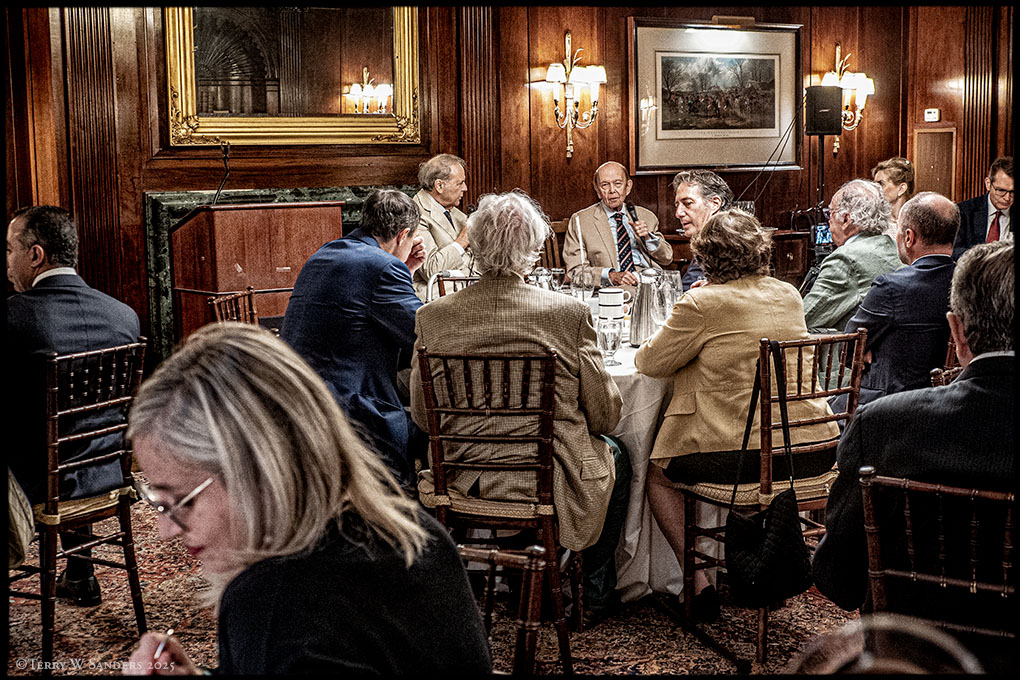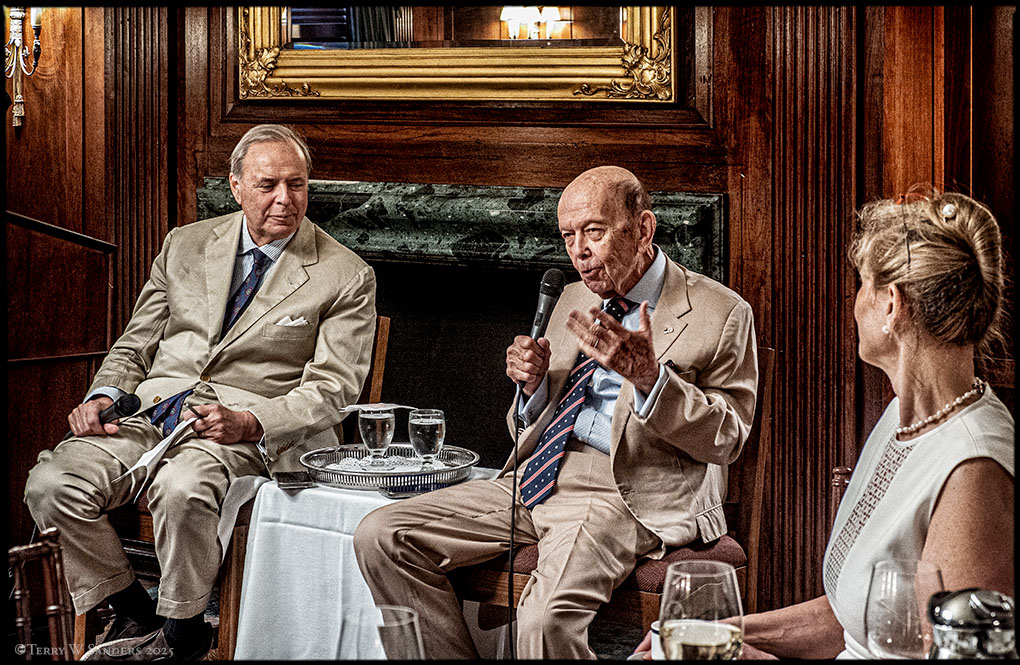Ahead of Donald Trump’s July 9th deadline before imposing tariffs on products imported from the European Union, Gruppo Esponenti Italiano President Mario Calvo Platero invited former Commerce Secretary of the first Trump Administration, Wilbur Ross, to the Racquet & Tennis Club on Park Avenue.

The 87-year-old’s storied career began at just 16 as a chauffeur in the parking lot of a golf club in New Jersey. For college, the business magnate told the audience of business leaders, diplomats, and journalists that he chose Yale “for the excellent creative writing program, but by the end of the second week I was already behind.” “I quit the course and went down to Wall Street.”
Years later, with Ross’s career already established in restructuring companies that had failed or were on the verge of bankruptcy, came his meeting with Donald Trump, when he was called in to rescue from bankruptcy the two casinos opened by the tycoon in Atlantic City. After hammering out a deal over months of negotiations, the banker learned two things: the first was that Trump was not used to getting no’s; the second: “he likes to negotiate in the media.” Ross said that the president “is a person of very strong opinions. If the arguments being defended are strong enough, he will come around.” For example, in the case of the free trade agreement with Mexico and Canada, when Ross was Secretary of Commerce in Trump’s first term, “I explained to him that it was better not to withdraw and that he could use the threat of leaving the treaty in his favor.” And he did it.

Ross also noted that “it’s kind of his style to supercharging everything.” For instance: “when the tariffs went up to 150 percent, there was no reason why China would not have been able to send any products already. But that number gets everyone’s attention. Now the best result is to receive 10 percent.”
With respect to the June 9 deadline, Ross elucidated that in the long run there will not be a trade war. “The other countries cannot afford to have escalating tariffs because trade with the U.S. there is a larger percentage of their economy than our exports are to them. This also implies that the dollar worth of trade problem imposed on us is not really as damaging as the dollar that he imposes on the other countries.” The president’s former commerce secretary said there are a number of variables to consider, including whether Trump finds himself negotiating with someone representing 27 countries who “each of which has to sign on for anything,” in case there is one. “I would be more concerned about whether or not the European Union will be in a real position to make concessions.”












